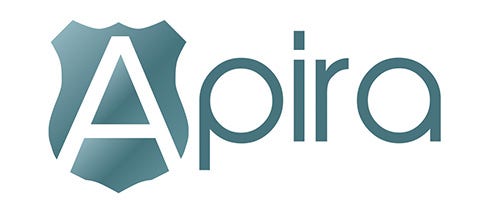Over 20% of healthcare organisations in the UK are still using paper records, risking inefficiencies that can cause crucial details to be missed and information to be misinterpreted, resulting in patient and staff safety incidents.
Implementing an effective EPR system can improve access to health and services, enhance quality and safety of care, and help the system become more efficient. Through an eco-system approach, we can provide comprehensive end-to-end support that is tailored to the needs of healthcare organisations and draws from experience, expertise and our network.
Why have an EPR?
NHS England are aiming for all integrated care systems (ICSs) and their NHS trusts to have core digital capabilities, including Electronic Patient Records (EPR), in place by March 2025.
Patients, as well as health and care staff across the country, should benefit from personalised, easier to access, digitally- enabled health and care. The Government priorities to level up the digital and data provision across the health and social care sector is key to the delivery of safer care through timely decisions. Digital transformation is at the heart of health and care reforms and should be instrumental in embedding the technologies and processes. There are currently 28 Trusts without an EPR, and 90 Trusts require EPR optimisation.
Key EPR challenges
Based on our experience and expertise, we see the following areas as the critical challenges to a successful EPR deployment.
Your EPR journey
An ecosystem approach to your transformation journey
- Programme Proposal
- Prepare
- Develop
- Go Live
- Optimise
Our alliance
By offering a fully comprehensive end-to-end consultancy as a strategic partner, our alliance makes it possible to turn your EPR journey into sustainable transformation delivering real benefits, improving outcomes for both patients and frontline staff. KPMG’s role in the alliance is to provide EPR business case support, change management, system optimisation, training and quality review expertise. As an alliance, we have an ecosystem approach that can provide comprehensive end-to-end support that is tailored to the needs of healthcare organisations by drawing from experience, expertise and our network. We will provide healthcare organisations an end-to-end service to ensure that their transformation journey is successfully adopted.

Apira’s role in the alliance is to provide clinical leadership and change management support, as well as EPR business case, procurement and deployment expertise.

Aire Logic’s role in the alliance is to provide quality review and guidance, enterprise solutions and technical architecture, data migration, engineering and clinical coding expertise.
If you are interested in joining the alliance as a strategic partner, please reach out to us via the contact form at the bottom of the page.
Our offer
KPMG has a designated health team working across the NHS, giving us an unparalleled reach, equipping us to tackle some of the largest problems for our clients. We are delivering 100+ live engagements in setting up strategy aligned to national policy and local strategy, ensuring change in governance, process, people, and technology programmes are sustained.
From our experiences, we recognise the best value for your EPR programme investment comes from taking an ecosystem approach to meet your needs. By offering comprehensive support as a strategic provider, we can to turn your EPR journey into sustainable transformation delivering real benefits, improving outcomes for patients and experience for frontline staff.
Our support
The KPMG leadership team has over 450 years of experience within the NHS. By combining the skills and domain knowledge of an industry leading consultancy, we are uniquely placed to support your NHS Trust throughout EPR selection, deployment, digital transformation and optimisation. Unlocking the benefits of technology to improve health outcomes.
We are also a strategic provider for over 18 NHS Trusts focusing on continuous quality improvement (CQI).
If you don't have the in-house capacity to write a business case, design a strategy, develop software, architect a solution, or seamlessly migrate data, we can help you successfully deploy an EPR through our socially-driven and flexible services.
Our support offers a low-risk way to ramp up your EPR capability, increasing the speed at which your Trust can deliver against your strategy and release better outcomes for your patients.
We provide direct value to over 100 NHS clients through having healthcare at our core, UK-based expertise, and commitment to your programme until benefits are realised.
We are the 2nd largest training provider in Europe, having provided over 7m hours of learning to over 200 organisations. We have over 400 UK-based change and learning specialities.
Our insights
Something went wrong
Oops!! Something went wrong, please try again

Get in touch
Discover why organisations across the UK trust KPMG to make the difference and how we can help you to do the same.









